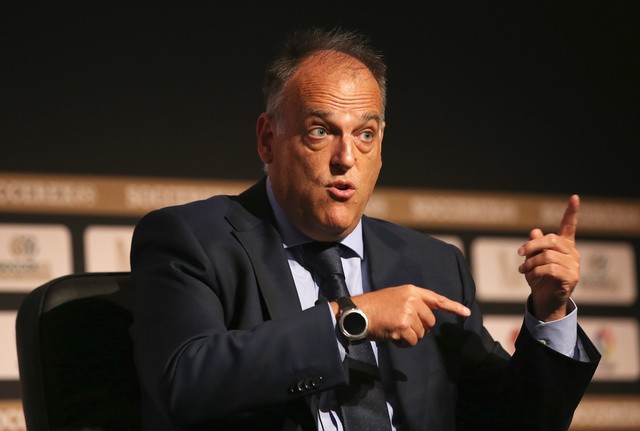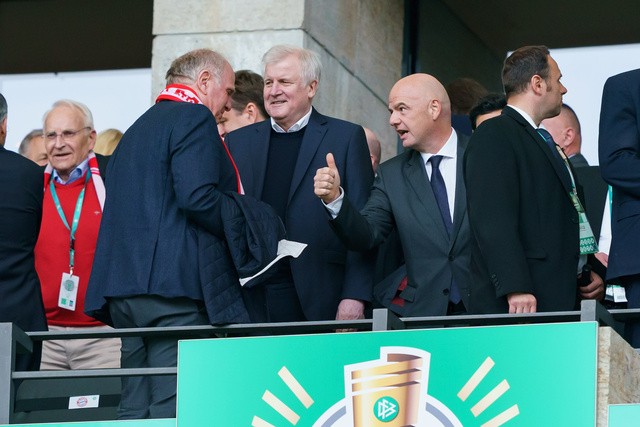Women footballers seek turning point in gender inequality campaign

Getty Images
Fight for equal World Cup prize money.
Potential windfall for women’s game.
PFA case supported by ‘an overwhelming sense of cooperative action among women footballers since 2015.’
25 June 2019 - 7:08 AM
The Executive Director of World Players Association tells Offthepitch.com that an ‘emerging confluence of forces’ could equalise prize money between the men’s and women’s game and fundamentally alter the complexion of women’s football worldwide.
Brendan Schwab, who also serves as chairman of the Australian PFA, is one of the leading figures behind the current campaign to challenge FIFA over allocation of prize money.
FIFA is awarding $30million total prize money to participants of the current World Cup, just 7.5 per cent of the $400million awarded in the men’s tournament last year.
Under its #OurGoalisNow campaign the PFA is challenging FIFA under the terms of its statutes to address this gap.
Strong legal case
FIFA’s statutes were updated in 2016, to ensure gender equality, anti-discrimination, human rights and the advancement of women’s football ‘into the organisation’s DNA’.
Schwab says that FIFA are bound by its statutes to equalise prize money and believes that if FIFA rejects its case the PFA would win a legal case. He says that the economic and symbolic impact of the changes would have a ‘transformative’ effect on women’s football globally.
‘FIFA has made statements about gender equality but is yet to back them up economically,’ said Schwab.
‘If one decision can be made that impacts the top 500 players of the world profoundly and change the culture around women’s pay in sport then it would set forth enormous changes at all levels of the women’s game.’
Felt by the players
‘Women players are a lot more dependent on their appearances for national team football than men are. The impact of low prize money for the World Cup is acutely felt by the players. In Australia we had to put a lot more work into the security of Matildas players income than we would the Socceroos because of the dependency on national team income’
Schwab says that the issue is more than about pay, however, and points to the example of Australia, where the players contractually receive 30 per cent of prize money given to the national association, and where the remaining 70 per cent of dramatically increased prize money would impact on all parts of the women’s game.
Such flows of equal prize money into the women’s game could, he said, ‘have a huge impact on domestic football.
‘What we would love is that the balance which is not paid to the players is invested in women’s football,’ he said.
‘This could be an incredible trigger to incentivise national teams to invest in women’s football and build better programmes and better club competitions. We’ve been working very hard to achieve that in Australia. We started the W League as effectively an amateur league 10 years ago and have now benchmarked those conditions to the A League, which started as a fully professional competition. So, it can occur when players are organised and there’s a focus on it.’'
Domestic flow
Such flows of equal prize money into the women’s game could, he said, ‘have a huge impact on domestic football.’
In March this year, the Women’s Super League signed a £10 million three year sponsorship deal with Barclays. Hailed at the time as a record breaking deal and a key moment in the evolution of the women’s game in England, its value would be dwarfed by the flow of even an 1/24 equal share of $400million Women’s World Cup prize money.
Schwab believes that is aim is not just legally attainable, but supported ‘by an overwhelming sense of cooperative action among women footballers since 2015.’
It can start to provide a more attractive career choice than even tennis. The strategic case is an enormous one.
Then, a successful legal case was brought against FIFA after plastic pitches were used at the Women’s World Cup in Canada, that enshrined equality between men’s and women’s events at future FIFA events.
State the case
This, he said, has been followed ‘an extraordinary range of activism on behalf of women players’ and reels of a list of cases from Ireland to Afghanistan where gender equality and anti discrimination cases have been brought on behalf of women players over the past four years.
‘The strategic answer is that FIFA could, by granting pay equality, uphold its statutes, demand that money that isn’t paid to players is invested in the women’s game and through the impact of that prize money and what would be shared to the top 500 women in the world, economically state the case that football is the sport of choice for women and girls in the world,’ he added.
‘It can start to provide a more attractive career choice than even tennis. The strategic case is an enormous one.
‘In the absence of that we can rely on the FIFA statutes. They are binding, the FIFA Council is bound by them. If there’s a past decision that is discriminatory in its impact than that decision can be reviewed. The regulations that apply in the Women’s World Cup provide for mediation and arbitration in CAS and we believe that there should be a very thorough process of consultation between all the unions in the world and FIFA. Failing that we have confidence that CAS can apply FIFA’s rules in such a way that FIFA’s decision can be overturned and a decision, which isn’t discriminatory put in its place.’
Three times as much in a week
Asked if pay differentials in women’s domestic football – which are far more pronounced than even at national level – should be addressed as a priority, Schwab demurs.
According a report by FIFPro, the global players union, which surveyed nearly 3,600 players in women’s leagues around the world, women footballers earn just $600 a month on average. Nearly half of top level players have no official contract and are forced to supplement their income with second jobs.
Her highest paid teammate in City’s men’s team earns three times that amount in a week.
The top paid women’s player in the Women’s Super League is understood to be the England captain, Steph Houghton, who is said to earn around £100,000 annually between her Manchester City and centralised FA contracts.
Her highest paid teammate in City’s men’s team earns three times that amount in a week.
‘Because it does exist does not mean that we shouldn’t be challenging pay disparities where we’re able to challenge them,’ said Schwab.
‘We’re dealing with a massive differential and a worsening situation’

